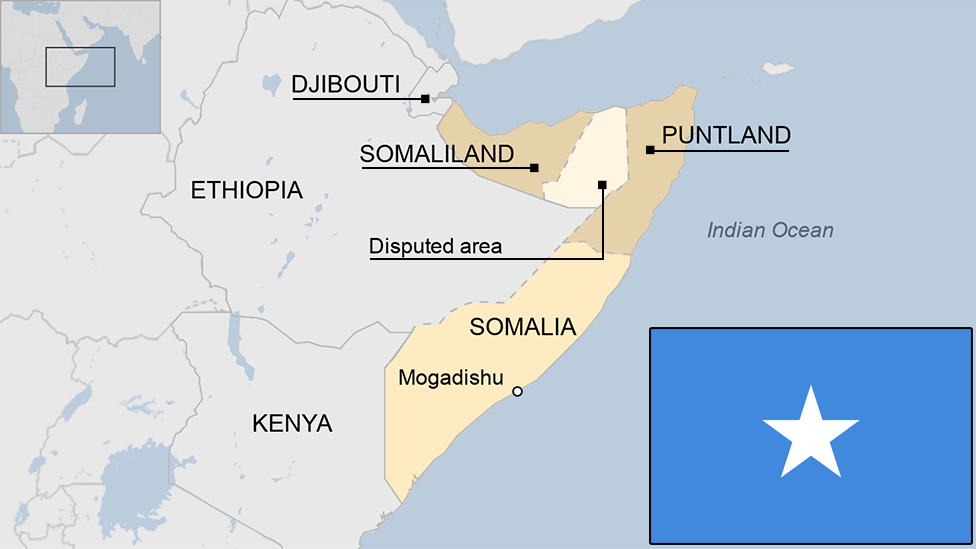Eritrea country profile
- Published
This page is no longer being updated. It was last updated on 18 April 2023
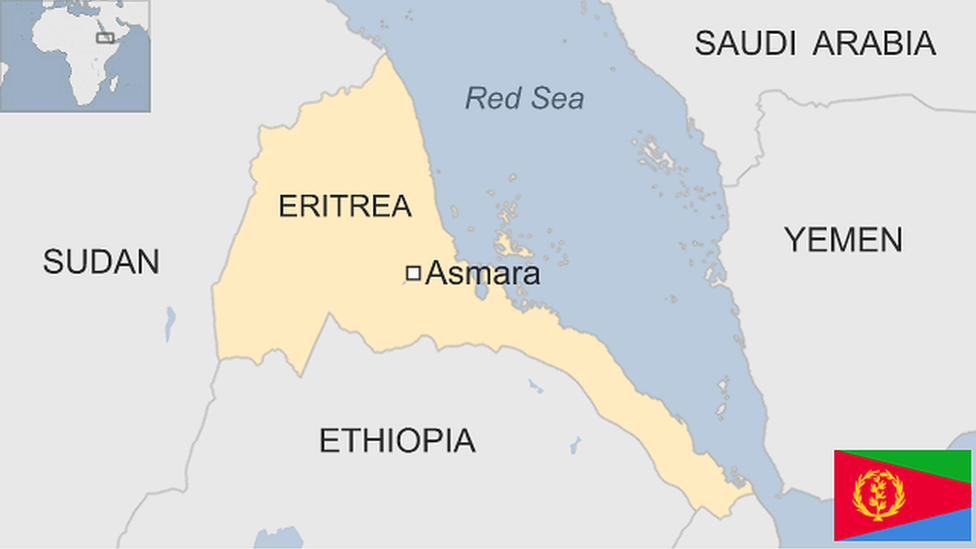
Eritrea won independence from Ethiopia in 1993 after a 30-year war, but has been plagued by repression at home and tense relations with its neighbours.
Bordered by Sudan, Ethiopia and Djibouti, it occupies a strategically important area in the Horn of Africa.
Tensions remained high across the closed and heavily-fortified border until 2018, when Ethiopia launched a surprise diplomatic initiative that formally ended the state of war between the two countries.
Eritrea is a one-party state and a highly-militarised society, which the government has sought to justify by citing the threat of war with Ethiopia.
Prolonged periods of conflict and severe drought have adversely affected Eritrea's agricultural economy, and it remains one of the poorest countries in Africa.
By UN estimates, hundreds of thousands of Eritreans have fled the country in recent years, making the perilous journey across the Sahara and the Mediterranean to Europe.
Read more country profiles, external - Profiles by BBC Monitoring, external
STATE OF ERITREA: FACTS
Capital: Asmara
Area: 117,600 sq km
Population: 6.2 million
Languages: Tigrinya, Tigre, Arabic, English, Beja, Kunama, Saho, Bilen, Nara, Afar
Life expectancy: 64 years (men) 68 years (women)
LEADER
President: Isaias Afwerki
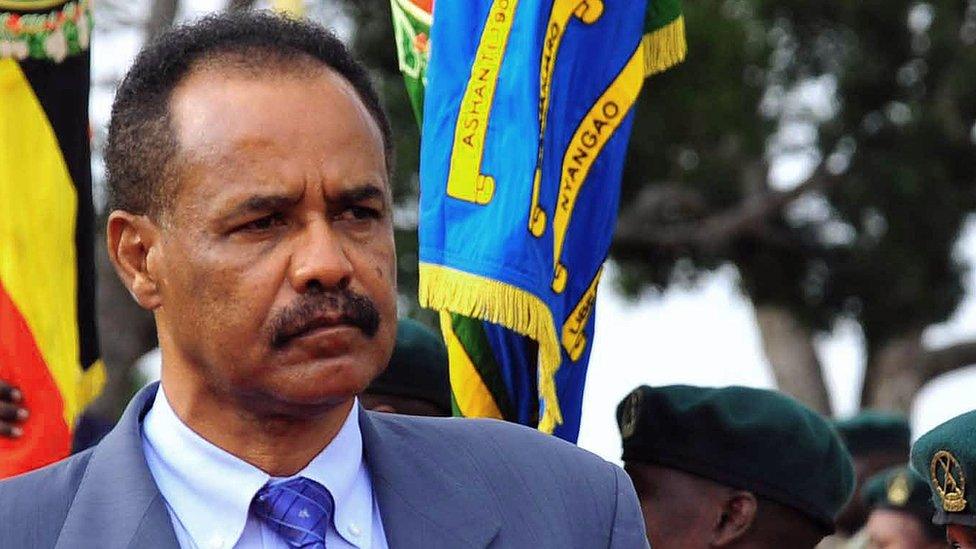
President Isaias Afwerki has governed Eritrea since it became an independent country in 1993. His People's Front for Democracy and Justice (PFDF) is the sole political party.
Presidential elections planned for 1997 never took place, and a constitution ratified in the same year has never been implemented.
In 1966 he joined the fight for independence from Ethiopia, and went on to found and later lead the Eritrean People's Liberation Front. He became head of the provisional government in 1991, when the Front defeated the forces of the Marxist Ethiopian government.
Following the 1993 referendum vote for independence, he was elected president and chairman of parliament, giving him control of both the executive and legislative branches of government.
MEDIA
Media beyond the state-sanctioned newspapers and broadcasters are non-existent.
In 2021, Reporters Without Borders rated Eritrea as having the worst overall press freedom in the world, even lower than North Korea, as all media publications and access are heavily controlled by the government.
Outlets run by Eritreans overseas provide alternative sources of news but their reach is limited, not least because of very low levels of internet access.
TIMELINE
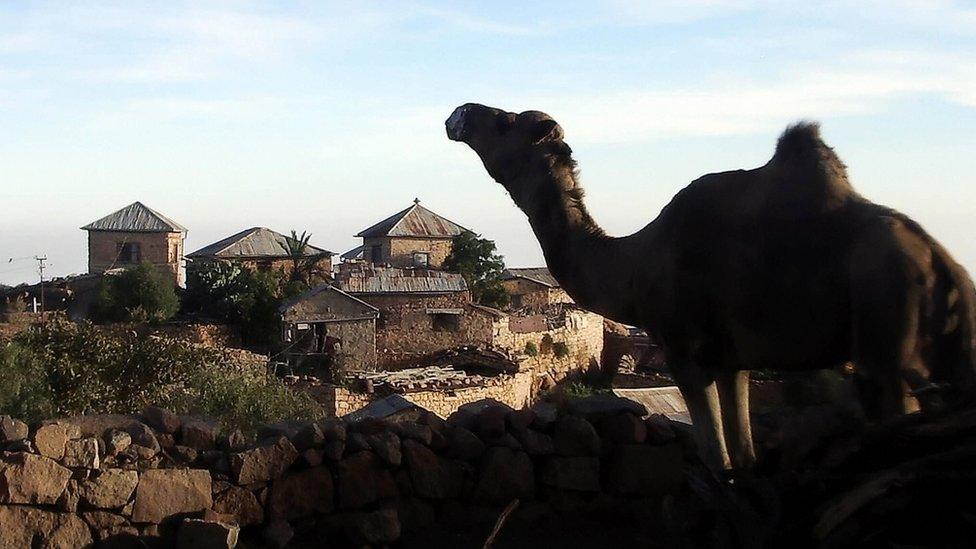
A community of monks lives a life of austerity little changed since their monastery of Debre Bizen was founded 650 years ago
Some key dates in Eritrea's history:
1st Century-960AD - Kingdom of Aksum. Based primarily in what is now northern Ethiopia, spanning Eritrea, Djibouti, eastern Sudan and extending at its height into much of southern Arabia.
c. 350 - Kingdom of Aksum adopts Christianity as the state religion.
c 630 - Arabs introduce Islam to coastal areas.
1270 - Yekuno Amlak, who claims descent from the last Aksumite king and ultimately the Biblical Menelik I and the Queen of Sheba, founds the Ethiopian Empire.
1517 - Ottoman Turks conquer most of Eritrea. They are driven out of much of the country by the end of the 16th Century apart from some coastal strongholds.
1869 onwards - Eritrea comes under Italian control as part of the so-called "Scramble for Africa" among European powers.
1882 - Becomes Italian colony.
1936 - Incorporated into Italian East Africa, after Mussolini's forces conquer Ethiopia.
1941 - During World War Two, the region is freed from fascist rule by British and Ethiopian forces.
1942-52 - British administration of Eritrea as UN trust territory.
1952 - UN General Assembly votes to make Eritrea a federal component of Ethiopia.
1958 - Eritrean Liberation Front (ELF) is formed.
1962 - Ethiopia annexes Eritrea, giving impetus to the independence movement and the 30-year war for independence.
1974 - Ethiopian Emperor Haile Selassie is overthrown in a military coup. A military junta led by Mengistu Haile Mariam seizes power.
1977-78 - Soviet support helps Ethiopian forces reverse significant advances made by Eritrean guerrillas.
1991 - Eritrean People's Liberation Front captures the Eritrean capital Asmara and forms a provisional government. The EPLF helps its allies in the Ethiopian rebel movement to topple Mengistu Haile Mariam.
1993 - Eritreans vote overwhelmingly for independence.
1997 - Democratic constitution is drawn up but never implemented.
1998-2000 - Eritrean-Ethiopian border clashes turn into a full-scale war which leaves some 70,000 people dead.
2007 - Eritrea pulls out of regional body IGAD (Intergovernmental Authority on Development) as IGAD member states back Ethiopian intervention in Somalia.
2008 - Fighting breaks out between Djiboutian and Eritrean troops in the disputed Ras Doumeira border area. At least nine Djiboutian soldiers killed. US condemns Eritrea, but Eritrea denies launching an attack.
2009 - UN imposes sanctions on Eritrea for its alleged support for Islamist insurgents in Somalia.
2010 - Eritrea, Djibouti agree to resolve border dispute peacefully.
2016 - The UN Human Rights Council calls on the African Union to investigate Eritrean leaders for alleged crimes against humanity.
2018 - Ethiopia and Eritrea end state of war after Ethiopian diplomatic overtures. UN Security Council ends sanctions on Eritrea, imposed over allegations of support for al-Shabab jihadists in Somalia.
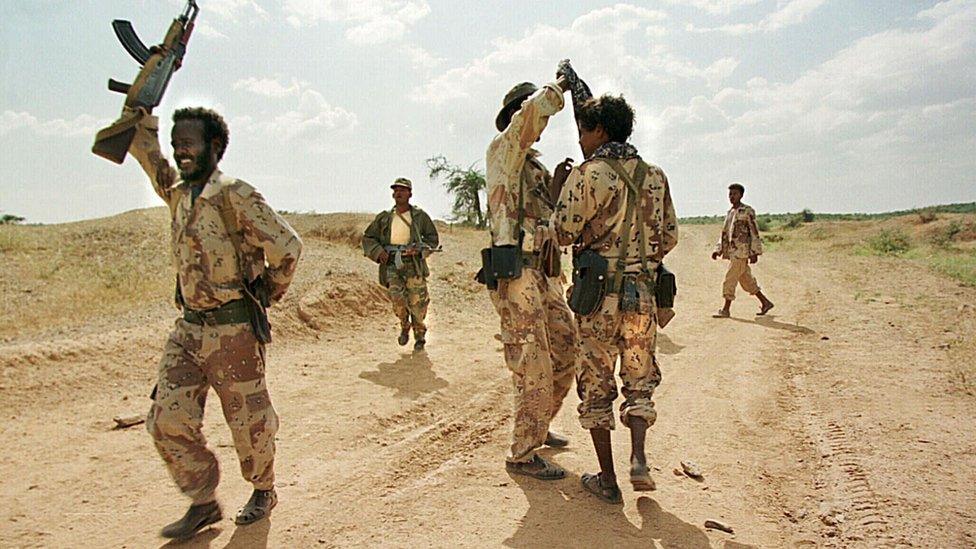
Between 1998 and 2000 Eritrea and Ethiopia engaged in a full-scale war in which 70,000 people are thought to have been killed
- Published13 September 2023
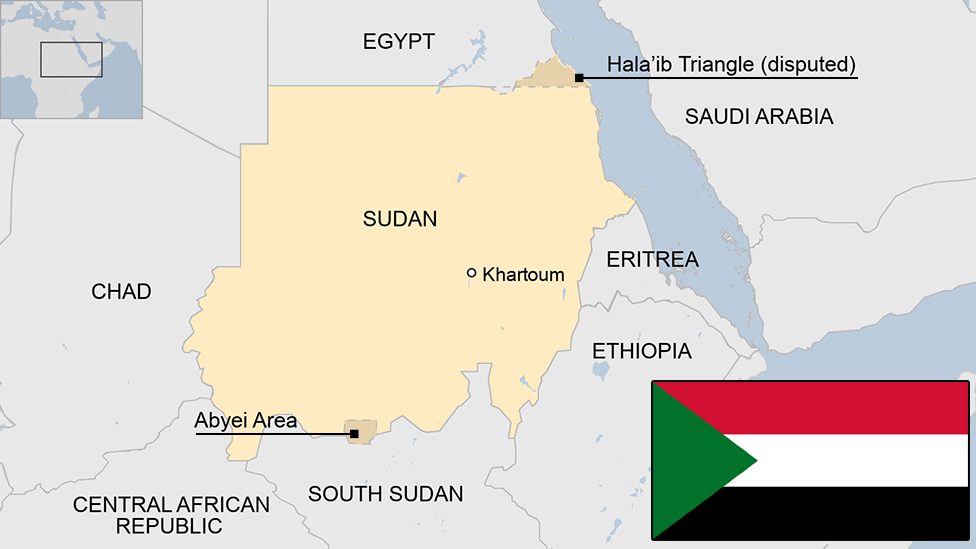
- Published2 January 2024
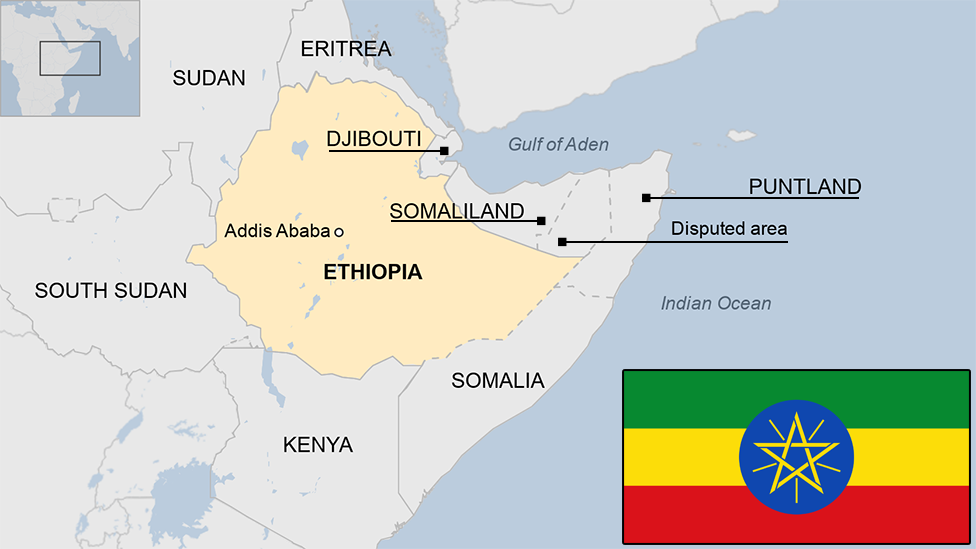
- Published18 April 2023
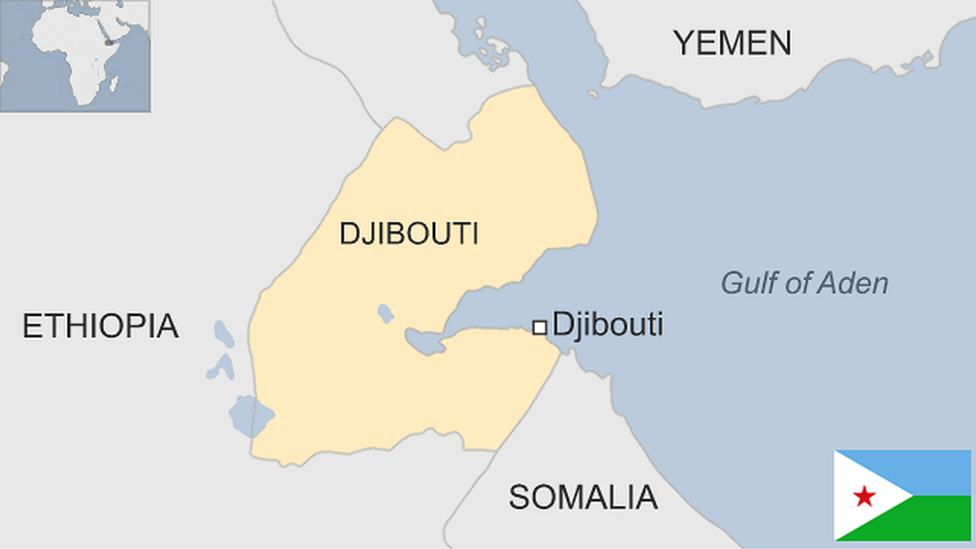
- Published2 January 2024
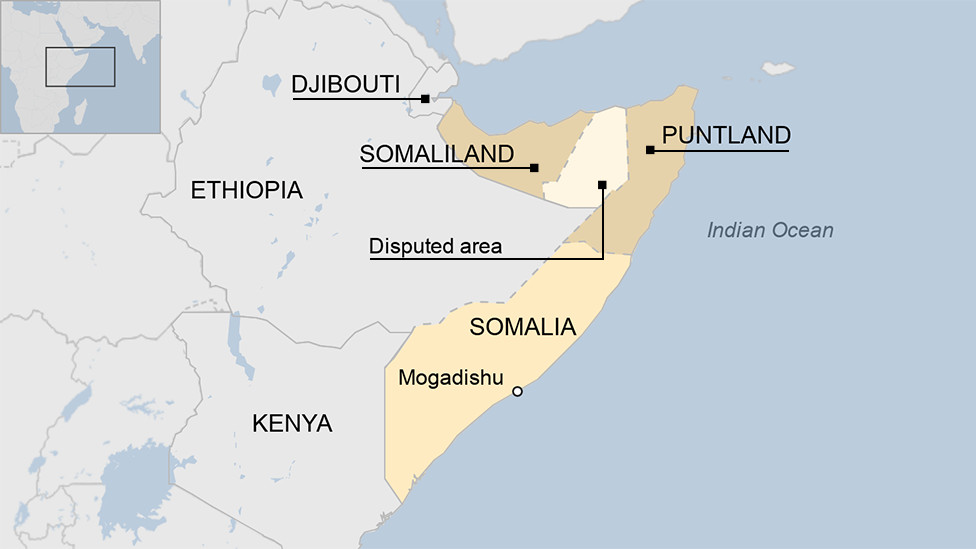
- Published2 January 2024
